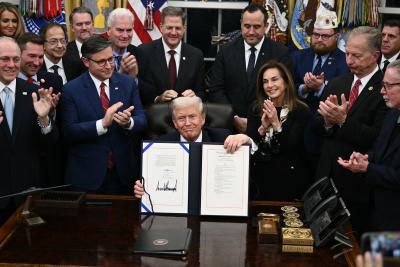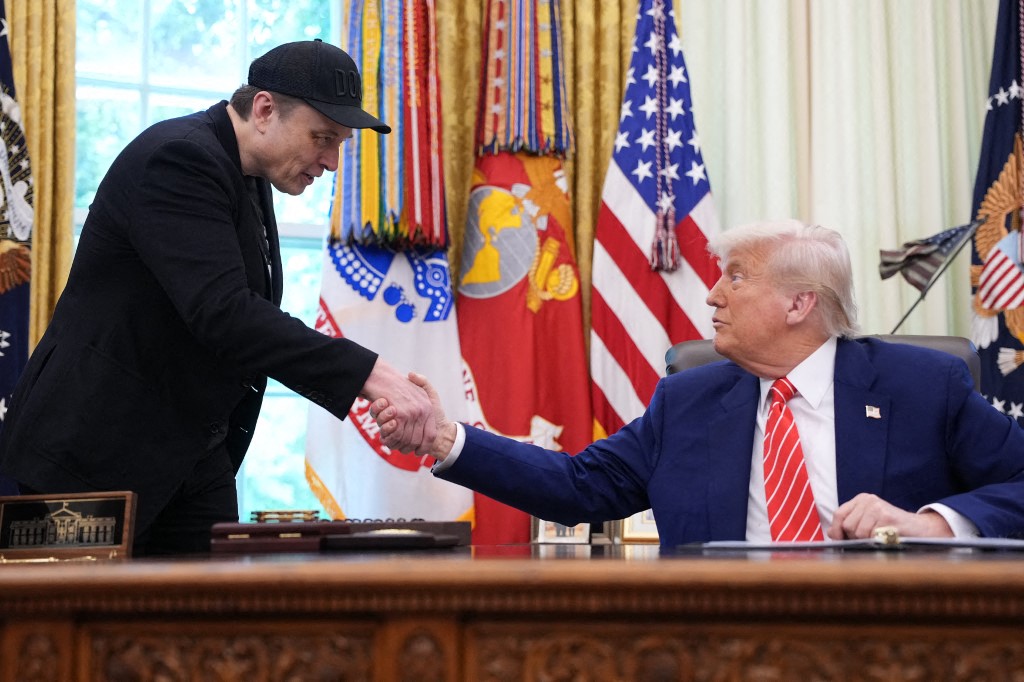The alliance between Donald Trump and Elon Musk was always a marriage of convenience—a fleeting convergence of New Space Age ambition and old-school political patronage. Their collision course reveals more than personal animus; it exposes the irreconcilable tensions between technocratic disruption and nationalist retrenchment in modern America.
Act I: Delicate Dance of Mutual Exploitation (2016–2020)
Trump, the real estate mogul turned populist president, and Musk, the South African immigrant turned tech messiah, began as pragmatic allies. Trump fast-tracked regulatory exemptions for Tesla during the 2020 pandemic shutdowns, while Musk—despite privately calling Trump "not the right guy"—joined his economic advisory councils. The unspoken bargain was clear: Trump gained Silicon Valley legitimacy; Musk secured NASA contracts and tax credits. Yet cracks simmered beneath the surface. Musk's globalist vision of renewable energy and space colonization jarred against Trump's "America First" dogma. This was not a meeting of minds, but a temporary docking of two transactional titans.
Act II: Ideological Divorce, Ghost of Paris (2017–2022)
The rupture came abruptly on June 1, 2017. When Trump withdrew the U.S. from the Paris Climate Accords, Musk resigned from the president's councils within hours, declaring the move "bad for Earth." The schism turned personal: Trump later branded Musk a "b…...t artist" (2022), while Musk dismissed the 45th president as a relic who should "sail into the sunset." Their divergence crystallized the era's defining conflict: empirical innovation versus instinctual nationalism. Musk's subsequent endorsement of Florida Governor Ron DeSantis in 2023—calling Trump a "drama magnet"—proved he'd chosen sides.
Act III: Twitter Gambit, Illusion of Control (2022–2023)
Musk's $44 billion acquisition of Twitter (rebranded X) was a direct challenge to Trumpism's media machinery. By reinstating Trump's banned account, Musk positioned himself as a free speech crusader battling "woke censorship." But Trump, ever the showman, refused to return. His Truth Social platform had become a loyalist fortress—and he dismissed X as "irrelevant." Musk's attempt to co-opt Trump's base had backfired spectacularly. The lesson? In the attention economy, captive audiences trump open platforms.
Act IV: $290 Million Betrayal Unraveling (2023–2024)
After the July 2024 assassination attempt, Musk executed a stunning pivot: he donated $290 million to Trump's campaign, the largest single contribution in U.S. history. The move was pure realpolitik—an attempt to buy influence with a likely winner. But Musk misjudged Trump's calculus. When Trump's "One Big Beautiful Bill" slashed EV subsidies while boosting fossil fuels in early 2025, Tesla sales plunged 13%. Eco-conscious buyers revolted against Musk's MAGA embrace. The tech titan learned the hard way: Trump rewards loyalty, not mercenary alliances.
Act V: Vendetta Goes Nuclear (2025)
By May 2025, the feud turned existential. Trump threatened to cancel SpaceX's $2.9 billion lunar lander contract, while Musk retaliated by hinting at Trump's presence in Epstein's flight logs and questioning the legitimacy of the 2024 election. The markets recoiled: Tesla shares plummeted 7% in 48 hours, erasing $68 billion in value. Trump's final blow? Installing longtime Musk critic Sean Duffy as NASA administrator—punishment for Musk's opposition to Duffy's FAA safety reforms. In this billionaire cage match, institutional power outgunned disruptive capital.
Epilogue: Cost of Colliding Egos
The Trump-Musk saga transcends personality clashes. It embodies a pivotal struggle between two visions of power:
Musk's Sci-Fi capitalism, globalist, deficit-obsessed, leveraging technology to reshape society, and Trump's "Old School" playbook with nationalism, patronage-driven, weaponizing institutions to crush dissent.
Their fatal miscalculation was mutual. Musk believed $290 million could bend Trump to his will; Trump assumed Musk's genius guaranteed subservience. Both underestimated the other's ruthlessness. The result? A $68 billion lesson in the limits of transactional politics—and a warning that in battles between giants, there are no victors, only survivors. As Musk launches his "America Party" and Trump consolidates power, their war reshapes not just markets, but the soul of American capitalism itself.
Please post your comments on:
[email protected]
 Politics
Politics













